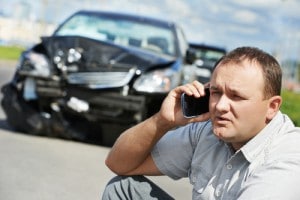Securing Medical Treatment After an SC Car Accident: Victims Could Wait Too Long After 9-11 Calls

When A Cell Phone Makes It Difficult to Determine Your Location
Investigators have recently discovered that there is a serious problem with some 9-11 calls. When a call is made on a cell or smartphone, the dispatcher should be able to triangulate the location of the caller through GPS information and send emergency responders to the accident scene very quickly. However, because call information is routed through the nearest cell phone tower, dispatchers have had great difficulty finding the caller’s location in a reasonable amount of time. When this happens, a victim of an SC car accident or violent crime may not receive the help they need when they need it.
Numerous local, state, and federal documents show a wide range of location data accessibility: 911 dispatchers could find you 95% of the time in some locations, or 10% of the time in others. Between 2011 and 2013 in California, more than half of cell phone calls did not transmit location data to 911 dispatchers. In December 2012, precise location in Silicon Valley specifically was shared in 10%-37% of the area’s emergency calls, depending on the wireless carrier. The problem seems to be getting worse, not better.
In Texas between 2010 and 2013, two-thirds of cellphone calls in a sample of calls from major cities – including Austin and Houston – reached 911 without instant transfer of location data. In Fairfax County, Virginia, which is just outside Washington, DC, 25% of cell phone calls to 911 in 2014 gave precise location data, meaning 75% of the calls could have suffered delays while dispatchers tried to find the car accident or crime location.
“It is now easier than ever for victims to reach 911, but harder than ever for responders to reach them,” said David Shoar, the sheriff in St. John’s County, Fla., writing to the FCC in November as president of the Florida Sheriffs Association.
Part of the problem for 911 dispatchers is due to how they find cell phone location data. When the emergency call comes in, the dispatcher does not automatically receive location data for the caller; instead, the dispatcher’s computer sends a request to the cell phone network to provide the caller’s location. This can take seconds or minutes, and sometimes return no information at all if the call has been routed through a different area’s cell phone tower.
The FCC issued new rules in January of this year for cell phone carriers to improve location data reliability for 911 dispatchers over the next several years, but the plan’s first date is set for 2017. In the meantime, too many emergency calls for help with serious car accidents or violent crimes will suffer from delays.
Cayce, South Carolina Working to Help 9-11 Dispatchers Find Car Accident and Crime Victims Faster
The Cayce Public Safety agency is working to train 911 dispatchers in Cayce, and perhaps the rest of South Carolina, on some common sense approaches for emergency calls for car accidents and violent crimes to help emergency responders arrive faster.
The approach is called “tour training,” and involves the dispatcher asking the caller for landmarks.
“When they are excited or don’t quite know what’s going on, they don’t always know I am at 123 Jones Street,” Officer Even Antley explains. “They may see a building or can describe what they see what kind of landmarks. We want you as a dispatcher to pick up on those landmarks and be able to send resources in the right direction.”
“You can almost put a face on a name,” said emergency responder Brandon Turner. “It’s the same way with streets: what you are actually talking about, what’s actually on the street, rather than saying this is 12th Street.”
Using specific landmarks can help the dispatcher find the caller on a map, especially if the caller’s location is large, like an interstate, park, or street.
The Strom Law Firm Fights for Compensation on behalf of SC Car Accident Victims
If you or a loved one have been in a serious car accident caused by another’s negligence or malice, you could suffer long-lasting physical or emotional problems which need expensive medical attention. The SC personal injury attorneys at the Strom Law Firm fight for fair compensation for SC auto accident victims. Let us deal with the insurance company while you focus on getting better. 803.252.4800

